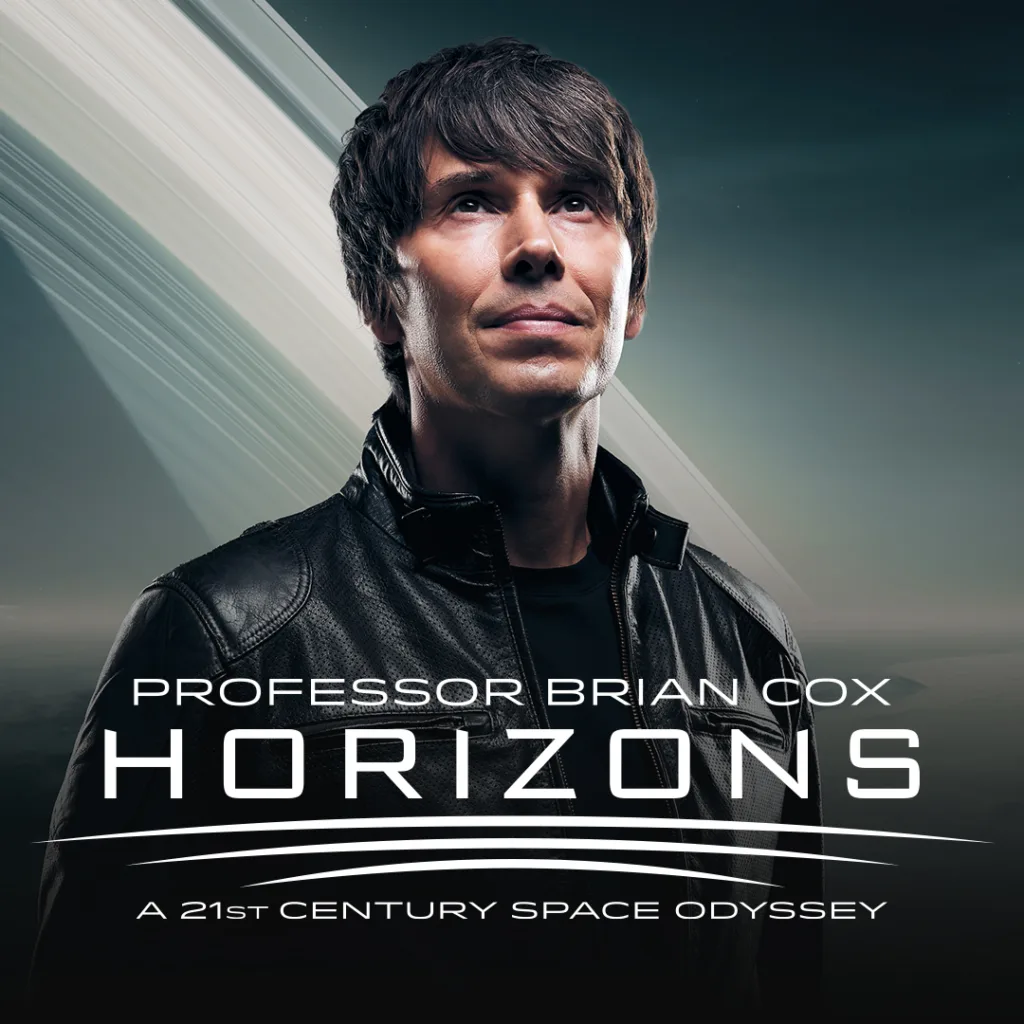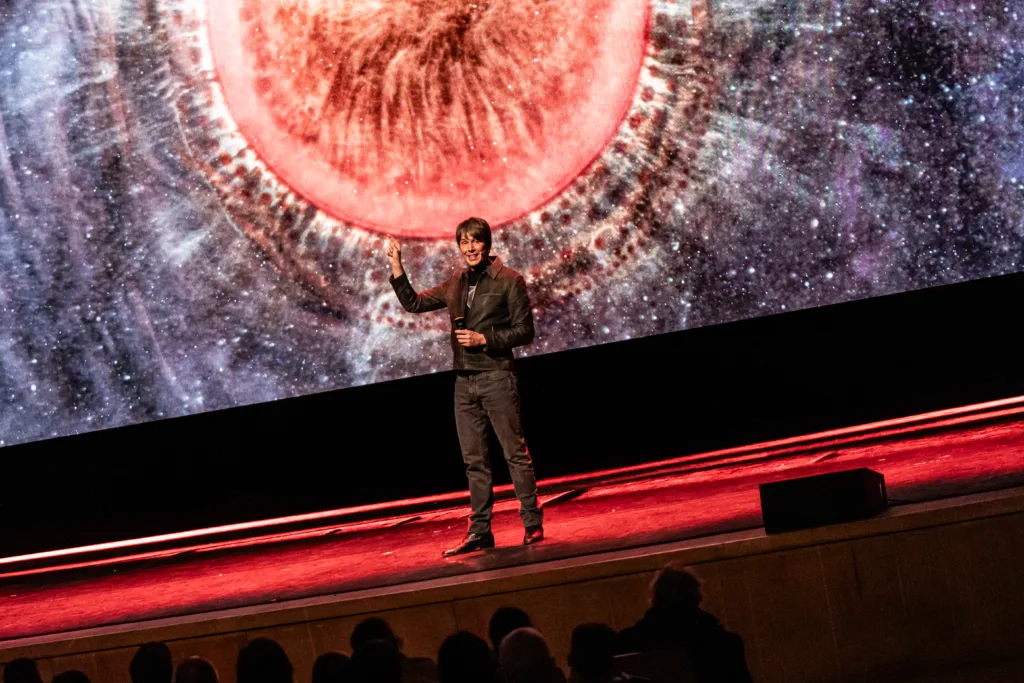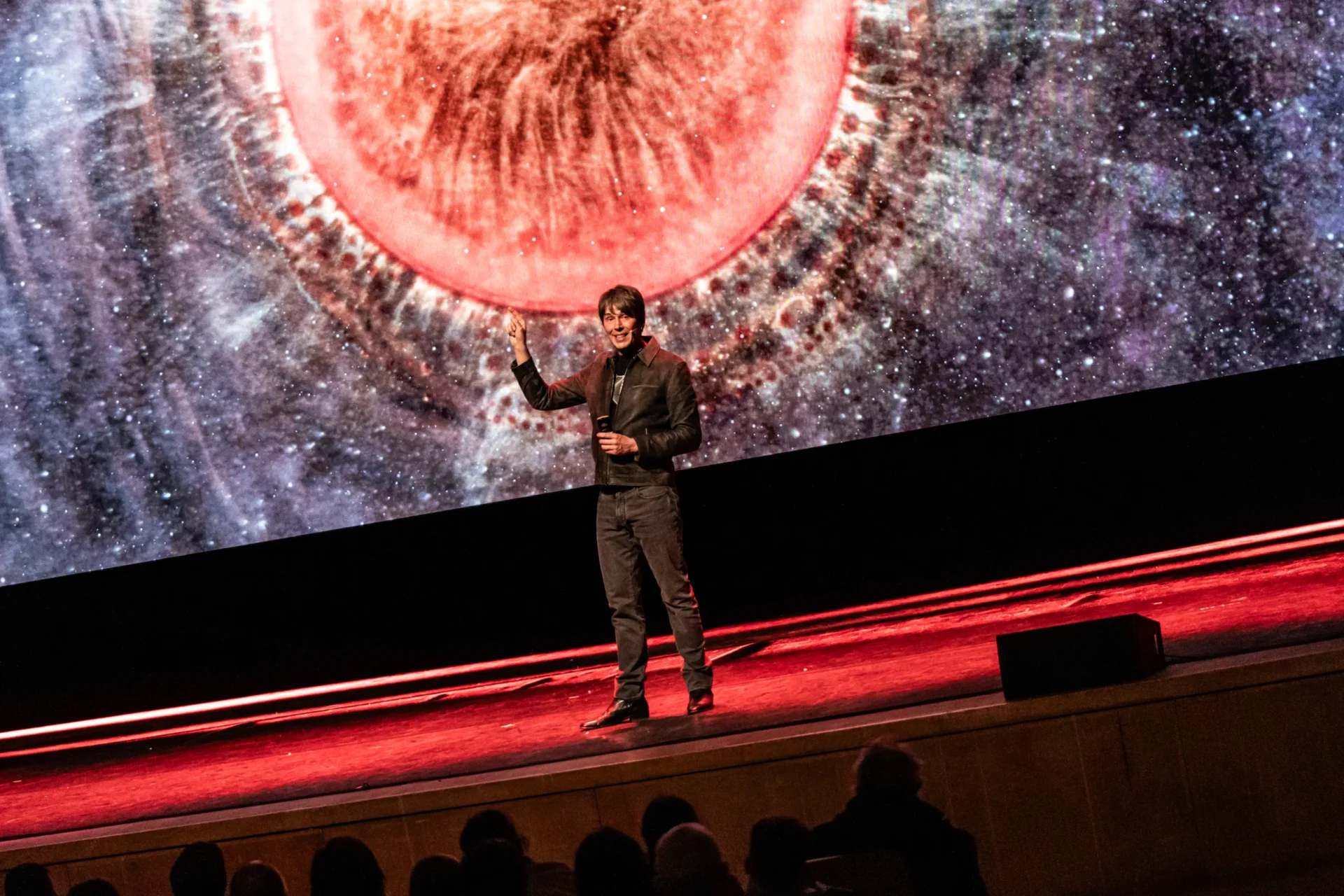He’s the coolest nurd in the galaxy. In his sell-out show Horizon – a 21st Century Space Odyssey, Brian Cox spoke fascinatingly for two hours without notes. Interspersed amongst the science were some moments of humour.
Drawing mathematical equations on a giant cinema screen he remarked that being in front of Cambridge audience, he needed to get it right and many of them would have no trouble understanding the maths.
Another Cambridge reference was to Stephen Hawkin and his work on black holes in the 1970s. The first half of the show plots the future of the universe and where it is going.
The second half looks back to the Big Bang and before it, which he called The Inflation.
The high-definition images that he showed of the galaxies and the visible universe were taken from the James Webb telescope. They are stunning. He showed a picture which looked like a snow storm, but he said within those storms patterns could be seen which were useful to understanding the origins of the universe.
The snow storm is not just random.

Cox comes to the conclusion that intelligent life on the billions of planets in our galaxy could most likely be limited to just us. One of his friends who is an astrobiologist thinks that if there is other life in our galaxy it is most likely slime.
The average presence of such life in any galaxy is zero. So, we are pretty unique.
Life on earth has existed for four billion years. (The earth is only 4.8 billion years old). We (humans) only emerged in the last couple of hundred thousand years. But Cox says it needed those four billion years to get to us.
During that time, there could have been many events that prevented that development but miraculously, here we are.
What we can see of the universe could be the equivalent of a square metre on the earth’s surface. Current theory states that a tiny fraction of second after the Big Bang there was period of inflation containing ripples which turned a uniform soup of particles into galaxies and stars and ultimately us.
Other universes whose inflation did not contain ripples may have remained a soup.

Given that our existence is such an unlikely possibility, the chances of there being other civilisations in the galaxy are vanishingly small.
Cox likes to show that he and other physicists are standing on the shoulders of those who have gone before. He quoted Father Georges Lemaitre (1894 to 1966) who when asked how he could reconcile being a Catholic priest and a man of science, said there were two paths to the truth, and he chose to take them both.
He also pointed to the cosmologist Carl Sagan who said the universe created the astrophysicist so it could look at itself.
Cox combines mastery of his subject with the appearance and the laid-back quality of a rock star.
He has not lost his sense of proportion. He remembered being on The Sky at Night with its presenter Patrick Moore. Moore said the sun would run of energy in five billion years.
An audience member put up his hand to ask whether Moore had said billion or million. Moore replied: “I don’t think it matters really.”
Horizons is touring.






















